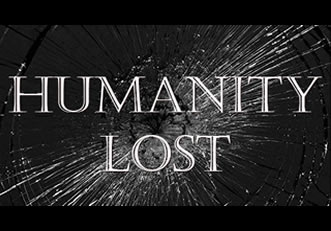It wasn’t that long ago that I felt encouraged about the activity surrounding our drug policy. That is not to say I agreed with every aspect of policy, in fact there are many facets that I strongly disagree with, but at least the opioid epidemic found its way to the foreground and somethitng was being done about it.
A lot of my enthusiasm stemmed from the actions of a little agency in the White House that not many people have heard about, the Office of National Drug Control Policy (ONDCP), or its impact. It’s one of those smaller agencies that doesn’t get talked about that much but has had an over-sized influence on our drug policy and how it’s carried out – that is until now.
The Anti-Drug Abuse Act of 1988 created ONDCP during the Reagan administration. The bill was approved almost unanimously by margins of 346–11 and 87–3 in the House and Senate, respectively. The agency’s director, who is often referred to as the ‘Drug Czar,’ is selected by the president and must be approved by the Senate before taking the helm. The office was intentionally placed under the executive branch so that its policies would carry the full weight of the president. It quickly became the center piece of then President Ronald Reagan’s war on drugs.
Among its responsibilities, the agency serves as a coordinating body for the nation’s drug control effort by overseeing international and domestic anti-drug efforts of executive branch agencies. The programs the agency developed contributed heavily to the modernized public health and safety initiatives. The ONDCP has always had the unique ability to plan, elevate, and execute the vision of the president’s drug policy.
Like past presidents, the current administration has pledged to fight the opioid crisis and drug addiction in America and making it a priority for this administration. However, congressmen from both sides of the isle have said that the efforts are not enough.
The devil is always in the details. From early on this administration solution to the opioid epidemic has been firmly based in law enforcement and little else. In fact the ONDCP was nearly obliterated this time last year by proposed budget cuts. Dissenting congressman and senators from both parties saved the agency but many speculate that they will not be able to replicate their success the coming years.
The ONDCP was though to be on the chopping block when the administration proposed slashing the agency’s budget by 95 percent in 2017. This would have effectively pull the teeth out of the agency’s ability to reduce drug use and its consequences, and end the two grant programs to law enforcement and drug-free community programs that help fund cities hardest hit by this avoidable epidemic. However, preliminary indications are that the ONDCP will be funded for at least another year.
But there’s more than one way to defang a government agency that could cause a thorn in your side, such as replacing leadership with someone more amenable and loyal to one’s objectives. Richard Baum has served as interim director of ONDCP – ‘Drug Czar’ – for over a year. He has worked in the agency for two decades – through four presidential administrations – and is considered a valuable expert on addiction and its treatment by his peers. The last permanent director was Michael Botticelli (March 2014 to January 2017) whose bold actions in combating addiction convinced many experts to believe he had been the most consequential director in ONDCP history.
Baum’s replacement, if approved by the senate, will be deputy White House chief of staff Jim Carroll. Before joining the administration just a few months ago, Carroll was Washington counsel to the Ford Motor Company. As far as his health credentials are concerned the White House said that after law school, Carroll spent five years as the assistant commonwealth attorney for Fairfax, Virginia; where the majority of the cases were drug-related and he worked directly with those affected by drug abuse.
Carroll was not the administrations first choice to run the ONDCP. That distinction belongs to Rep. Tom Marino (R-Pa.) – another politician with no medical, health or addiction treatment background. Marino has a history of advocacy for legislation friendly to opioid manufacturers; but it after a joint Washington Post/60 Minutes investigation named him the chief advocate of a bill critics say made it harder for the DEA to freeze suspicious drug shipments that he withdrew from consideration. Marino tried to clear his name and defend his record by claiming the bill he championed was different from the one ultimately signed into law.
There are other glaring red flags that signal the demise of the ONDCP. In the past year seven top level senior officials in the agency have resigned. Many posts remain vacant or filled by political loyalists such as Taylor Weyeneth. The 24-year-old and recent St. John’s University grad was installed by the White House in the number two position of the agency. As the Deputy Chief Of Staff, Weyeneth was responsible for the coordinating the anti-drug efforts of public health and law enforcement authorities’. This would seem to be a lot to ask of a person with no professional experience whose only credentials according to the Washington Post are campaign duties included low-level tasks like “coordinating voter services” and “arranging travel and temporary housing for senior campaign officials,” as well as “special projects.”
The ONDCP was once the pride of President Reagan. It has served as the vision of five president’s drug policy for twenty-nine years, and one year for the current president. In the last twelve months the ONDCP has been reduced to a shell of its former prestigious self with neither the talent nor authority to influence on our drug policy and/or how it’s carried out.
But equally concerning is reports from reputable new organizations regarding White House counselor and former campaign manager Kellyanne Conway’s work at the administration’s opioid abuse policy. It has been reported that Conway and other political types with no relevant health, medical and/or addiction experience – including the 32-year-old son of Rudy Giuliani, Andrew, who the White House says has no background in drug policy – have taken control of drug policy and have quietly ‘frozen out’ drug policy experts and professionals – such as Rich Baum – of the decision-making process. In fact, Baum has not been invited to, or attended, Conway’s meetings. According to a report from Politico ‘Two political appointees from Baum’s office, neither of whom are drug policy experts, attend on the office’s behalf, alongside officials from across the federal government, from HHS to Defense.’ Former ONDCP officials say the Conway’s drug policy office is taking a leading role in addressing the crisis.
Now layer all of this over the Department of Justice’s new policy on sentencing guided by the vision of the Attorney General of the United States, Jefferson Beauregard Sessions; the former Assistant U.S. Attorney in the Office of the U.S. Attorney for the Southern District of Alabama, Attorney General of Alabama and a four term senator from Alabama.
Sessions has never shied away from his position of strict adherence to the letter of the law and his belief in harsh punishments. As Alabama’s Attorney General, Sessions strongly supported state legislation seeking to punish a second drug trafficking conviction, including dealing marijuana, with a mandatory minimum death sentence. In 2005 as a senator, Sessions was one of nine Senators who scuttled a Senate amendment to a House bill that prohibited cruel, inhumane, or degrading treatment or punishment of individuals in the custody or under the physical control of the United States Government; and in 2015 opposed and defeated the bipartisan bill ‘Sentencing Reform and Corrections Act,’ which sought to reduce mandatory minimum sentences for some nonviolent crimes.
On May 12, 2017, just months after recusing himself from any investigations into Russia’s interference in the 2016 presidential election, Sessions issued a two-page memo ordering federal prosecutors to “charge and pursue the most serious, readily provable offense.”
“By definition, the most serious offenses are those that carry the most substantial guidelines sentence, including mandatory minimum sentences.”
In a press conference Sessions claims that the new direction is not pointed at low-level drug users; “If you are a drug trafficker,” he said, “we will not look the other way. We will not be willfully blind to your misconduct.”
However this is coming from a man who believes that it is Marijuana and not prescription opioid painkillers that is fueling opioid addiction. In a recent press conference Sessions stated that, “The DEA said a huge percentage of the heroin addictions start with prescriptions. That may be an exaggerated number—they had it as high as 80 percent—we think a lot of this is starting with marijuana or other drugs, too.”
But what I find most concerning is the solution Sessions Humanity Lost believes will curtail doctors from prescribing opioid painkillers. According to Graham Media Group/ClickOrlando.com, Sessions stated that, “the DEA will now ask medical practitioners when they apply or renew their license to indicate whether they have received training on prescribing opioids.” That, he hopes, will prevent doctors from overprescribing addictive drugs.
On December 22, 2017, Sessions rescinded guidelines intended to warn local courts against imposing excessive fines and fees on poor defendants.
In October 2017 and again in January 2018 the President of the United States of America declared the opioid crisis a public health emergency. However if you think that means that he has put best and brightest minds in the county to work in eradicating this epidemic you are sorely off the mark. Instead, the President has placed political loyalists with little to no health, medical and/or addiction experience in positions of authority to determine drug policy and the best course of action to end this raging epidemic, and in doing so, usurping the opinions, positions and policies of seasoned and experienced addiction experts. What could possibly go wrong?! Humanity Lost
64,000 Americans died avoidable deaths in 2016 at the hands prescription and illicit drugs – 175 lives a day – and more than 600,000 Americans died from drug overdoses between 2000 and 2016. Everyone personally knows someone afflicted by this disease. According to the Centers for Disease Control and Prevention, drug overdoses are now the leading cause of death for Americans under 50. The human cost of this epidemic – the loss of American lives – is staggering and this is the best this administration can do?!
My only advice to anyone addicted, anyone who has a loved on who is addicted or is relapsing chronically is to find treatment right away. The handwriting is on the wall – the time and opportunity to get treatment is never going to be any better than it is right now.
John Giordano, Doctor of Humane Letters, MAC, CAP, is the Humanity Lost founder of ‘Life Enhancement Aftercare & Chronic Relapse Recovery Center,’ an Addiction Treatment Consultant, President and Founder of the National Institute for Holistic Addiction Studies, Chaplain of the North Miami Police Department and is the Second Vice President of the Greater North Miami Beach Chamber of Commerce. He is on the editorial board of the highly respected scientific Journal of Reward Deficiency Syndrome (JRDS) and has contributed to over 65 papers published in peer-reviewed scientific and medical journals.


